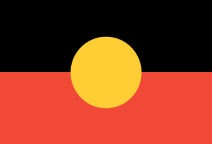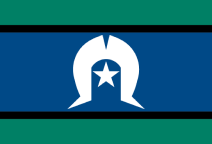Traditional Owners have managed land and water sustainably for thousands of generations. Caring for Country, including its waterways, is the custodial obligation of Traditional Owners. Keeping Country healthy can deliver thriving cultural economies and benefits for all Victorians.
Water is Life
Under Water is Life: Traditional Owner Access to Water Roadmap (Water is Life), the Victorian Government is committed to working with Traditional Owners to increase their access to water and their involvement in water management. Water is Life provides an important framework to support Traditional Owner self-determination in water access and management.
In 2021-22, the VWA reported on the volume of water entitlements held by Traditional Owners and other Aboriginal organisations for the first time. The 2022-23 Accounts provide updated information as at 30 June 2023. This annual reporting will help us monitor our progress against Targeted Outcome 7 in Water is Life Traditional Owner Access to Water Roadmap: Water is returned to Traditional Owner groups across Victoria through the issue of water entitlements for their self-determined use.
Future Accounts will build on this reporting in partnership with Traditional Owners.
2022-23 overview
Traditional Owners and other Aboriginal organisations hold surface water and groundwater entitlements. The total entitlement volume held by these organisations as at 30 June 2023 was estimated to be 6,892 ML, higher than the 6,803 ML held in the previous year (Table 1).
Note that this reporting encompasses water held by Registered Aboriginal Parties as well as other known Aboriginal organisations and cooperatives. There may be other Aboriginal organisations holding water entitlements that are not included in this assessment.
Table 1: Water held by Traditional Owner organisations in Victoria
An example of how water has been returned to Traditional Owner Groups is March 2022 when the Gunditj Mirring Traditional Owners Aboriginal Corporation was allocated a 2.5 GL water entitlement in the Palawarra (Fitzroy River) within the UNESCO World Heritage Listed Budj Bim Cultural in the Portland Coast basin. Budj Bim was inscribed in 2019 for its cultural values to the Gunditjmara community and contains the world’s most extensive and oldest aquacultural system. Managing the flow of water over Country is an essential aspect of managing for cultural values, including the iconic aquaculture of kooyang (short-finned eel).
An example in the previous year was the 2 GL entitlement that the Gunaikurnai Land and Waters Aboriginal Corporation was issued from unallocated water in the Mitchell River.
Traditional Owners also work in partnership with the Victorian Environmental Water Holder (VEWH) to manage water for environmental and cultural outcomes. In the Ovens basin in 2022-23, 36 ML of water allocation was transferred to the VEWH by the Taungurung Land and Water Council Aboriginal Corporation for environmental and cultural outcomes.
In addition to the entitlements mentioned above, under section 8A of the Water Act 1989, any member of a Traditional Owner Group with a natural resource agreement under the Traditional Owner Settlement Act 2010 can access water from a waterway or a bore for traditional purposes. Like other Section 8 rights, these entitlements are not recorded in the Victorian Water Register. For more information on these entitlements, visit How is water managed?
Water information for Traditional Owners
The Victorian Water Register can be a useful source of information for Traditional Owner organisations about the volumes of water that are available and used on Country. For example, in 2022-23, at the request of DJAARA (Dja Dja Wurrung Clans Aboriginal Corporation), DEECA provided support in the development of a map of water infrastructure and extraction on Djandak (Dja Dja Wurrung’s Country), to be used in its Gatjin (Water)
DEECA welcomes further information sharing with Traditional Owners – if you would like to learn more about the information we have available, contact us at water.reporting@deeca.vic.gov.au.



